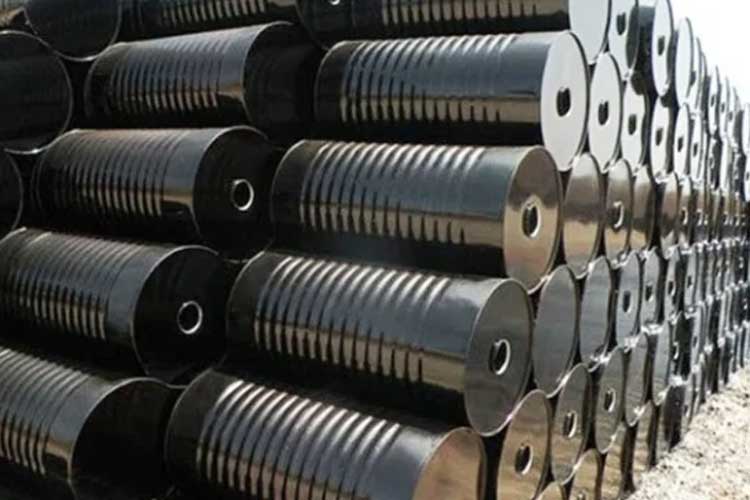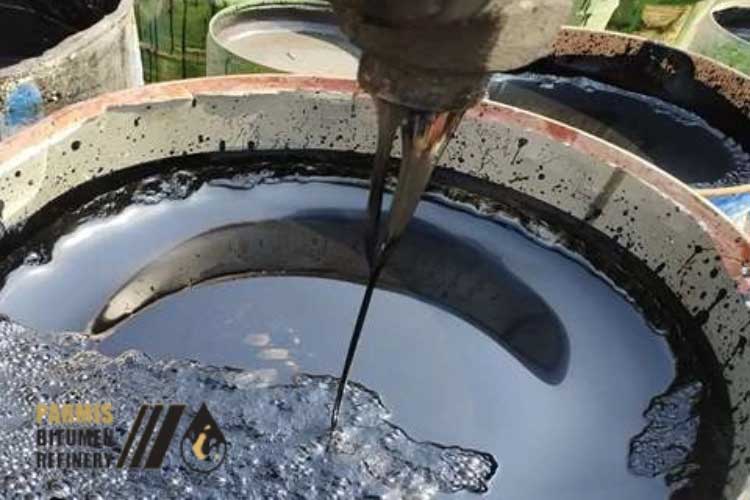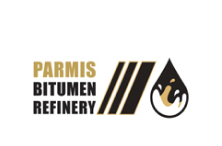In response to the question “What is Jey bitumen?”, it is an industrial bitumen marketed under the Jey brand and categorized by how it performs under heat and cold. Unlike many conventional binders, Jey bitumen products are engineered not to become overly fluid at very high temperatures and not to crack in cold conditions. In terms of manufacturing route, chemical characteristics, applications, and durability, Jey bitumen differs materially from other binders. If you’re comparing options to choose the right bitumen for your project, don’t miss the rest of this Parmis article.
What is Jey Bitumen?
Jey bitumen refers to a performance grade (PG) product line that is produced and evaluated within the viscosity grading (VG) framework. These products—often described in the market as VG bitumen—are assessed primarily by their high- and low-temperature behavior, rather than solely by penetration at a fixed temperature (as in penetration grades).
Because the focus is on in-service performance, you may also see these binders discussed alongside bitumen PG (Performance Grade) concepts. Jey bitumen products are formulated for varied climatic conditions to optimize pavement performance.
How Jey Bitumen Differs from Penetration-Grade Bitumen (Tests & Metrics)
Jey bitumen is tested with emphasis on viscosity and temperature-dependent behavior. Key parameters include viscosity at 60 °C and 135 °C, softening point, fracture temperature, and thermal susceptibility—allowing engineers to anticipate field performance. By contrast, penetration grades bitumen are chiefly characterized by the needle penetration at a specified temperature, which is only an index of relative hardness at ambient conditions.

Jey bitumen Thermal Behavior vs. Blown Bitumen
Blown bitumen (air-blown/oxidized) is produced by blowing hot air through base bitumen to increase hardness; it resists high temperatures fairly well but tends to be brittle at low temperatures.
Jey bitumen, evaluated on viscosity, fracture temperature, and elasticity, delivers more uniform performance across temperature extremes—avoiding excessive flow at high temperatures and cracking in the cold—making it well-suited to regions with variable climates.
Lab Comparison: Softening Point, Penetration & Thermal Stability
Typical softening point for Jey bitumen products falls around 47–65 °C, with viscosity controlled to remain stable at elevated temperatures.
Blown grades may show higher softening points yet often exhibit low-temperature brittleness.
Penetration for Jey bitumen is more tightly controlled and predictable.
High thermal stability is a hallmark of Jey bitumen, contributing to longer service life in civil works.
Production Route vs. Emulsions and Cutbacks
Understanding production differences is essential. Jey bitumen is produced via vacuum distillation and controlled separation of light/heavy fractions, yielding binders with higher resistance to temperature and pressure.
By contrast, emulsions and cutbacks are made by dispersing base bitumen in water or diluting it with solvents. Jey’s refinery-based route is engineering-led, relying less on chemical diluents and more on controlled refining to achieve target properties.
Compared with Natural Bitumen and Coal-Tar Pitch
Natural bitumen (e.g., gilsonite) occurs in mineral deposits and often contains higher levels of impurities (e.g., sulfurous compounds), complicating property control. Coal-tar binders are coal derivatives used in niche applications.
Jey bitumen offers a refinery-controlled, uniform structure, higher purity, and better compatibility with paving aggregates and construction materials.
Molecular Structure & Controllability
Natural bitumen typically contains complex aromatics, polar species, and sulfur, making precise performance control difficult. Jey bitumen, produced through controlled distillation and validated by rigorous testing, exhibits uniformity that enables reliable performance predictions—crucial for projects requiring mechanical stability.
Durability, Impurities & Volatiles
Natural and coal-tar binders can have higher impurity and volatile contents, which evaporate and shift properties over time. Industrial production and tight refining controls mean Jey bitumen contains far fewer volatiles, improving durability, reducing property drift with aging, and extending pavement life.
Jey Bitumen vs. Polymer-Modified Blends (PMB)
Polymer-modified binders blend base bitumen with polymers, oils, or additives to target properties like elasticity or adhesion; their performance depends heavily on additive quality.
Jey bitumen delivers consistent, specification-driven performance without heavy reliance on additives—ideal where uniform, predictable quality is critical.
Advantages of Jey Bitumen for Civil/Infrastructure Work
Robust durability across temperature swings
Lower dependence on additives to meet targets
Predictable mechanical behavior at scale
Superior resistance to fatigue and thermal cracking
Conclusion
What is Jey bitumen? It is a performance-oriented brand of industrial bitumen, classified and supplied within viscosity and performance frameworks to maintain pavement integrity under severe temperature variations. Differences in production route, purity, thermal stability, and in-field behavior distinguish Jey bitumen from other categories and make it a dependable choice for road and construction projects. Understanding these distinctions enables better material selection and longer-lasting assets.
FAQs
What do VG grades (e.g., VG10, VG40) mean in Jey bitumen?
They denote viscosity levels and corresponding performance envelopes; higher numbers indicate a harder, more temperature-resistant binder.
Does Jey bitumen comply with international standards?
Yes—Jey products are produced and tested in line with ASTM and IS standards and are widely usable in many markets.
Can Jey bitumen be used in recycled asphalt mixes (RAP)?
Yes. In RAP mixes, Jey bitumen can enhance adhesion and extend pavement service life.


